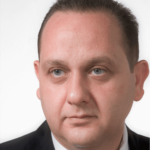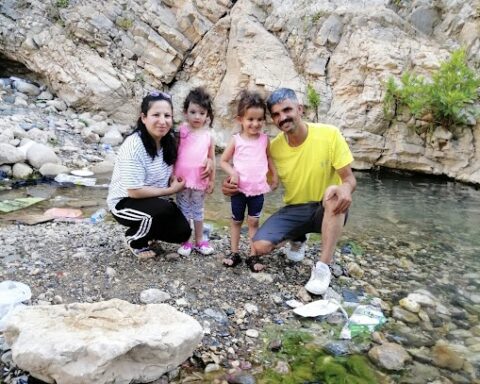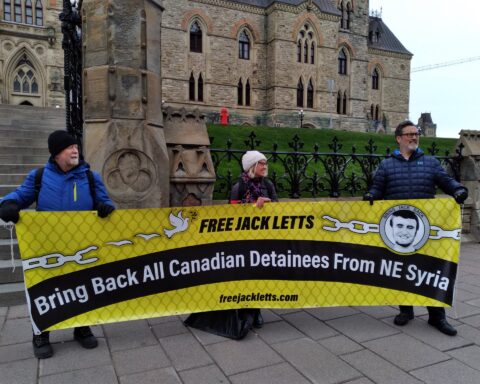They cannot go unnoticed – luxury cars with Syrian number plates roaming the streets of mega-rich Dubai, which is playing host to tens of thousands of Syrians fleeing the fighting in their home country. Owners of these cars are the lucky, wealthy Syrians who can afford to live in Dubai.
Thousands of Syrians, the well-off or those who can comfortably meet the expense of the city — believed to be the most expensive in the Middle East and the 22nd priciest city in the world, according to a recent cost of living study, have chosen to settle in Dubai. There are no official numbers of how many Syrians have arrived in recent months in Dubai since the revolt erupted in Syria two years ago.
On the other hand, Syrians on the breadline have been streaming into makeshift refugee camps in Turkey and Jordan, and those with little money are making their way to Lebanon, Egypt, Algeria and other countries. According to the UN High Commissioner for Refugees, the number of refugees has just passed the million mark and could double or triple by the end of the year if no solution is found to the seemingly interminable conflict.
But there isn’t yet any light at the end of the tunnel. US Secretary of State John Kerry appears to have a different approach to the hot file that is Syria, moving away from his predecessor Hillary Clinton, who famously called it a “wicked problem.”
I have to admit Clinton’s description of the crisis in Syria, which has displaced millions inside and outside the country and already devastated major parts in a conflict with no imminent winners, is the most accurate description that I’ve read. In fact, it’s been so since at least 1982: The bloodbath in the central city of Hama in which some 46,000 people, mostly civilians, died in around 20 days of fighting between an armed opposition and Syrian government troops led by Rifaat al-Assad, brother of the previous president Hafez al-Assad. The common folk of Syria wondered then why the world failed to move to help stop the killing or at least, openly and widely, condemn the bloodbath and the destruction of large parts of Syria’s fourth largest city.
This time, though, inaction could be perilous. The most recent sign of escalation was the holding of 21 UN peacekeepers hostage by the Syrian Free Army trying to oust President Bashar al-Assad. The peacekeepers, from the Philippines, were seized Wednesday and held in the village of Jamlah in southwestern Syria, near Jordan and the Israeli-occupied Golan Heights. They were freed on Saturday after strenuous negotiations.
The big question for Ottawa might be whether it position on Syria leans more towards Britain that has apparently assumed a vanguard’s stance in supporting the revolution, or simply trail behind that of the U.S. which wants to keep a distance. Kerry’s 11-day trip around Europe and the Middle East has already brought about some changes in American policy and a more concerted effort to resolve the Syrian internal strife in which more than 70,000 people have died since Arab Spring erupted in Syria in early 2011.
Syria is a “wicked problem” because it is complicated and foreign journalists and think-tanks appear to have failed in understanding the country’s social tapestry and political mosaic. What has been happening over the last two years is an extended Hama version, but with more lethal weaponry, a much wider geographical ambit, with potential regional implications that could destabilize the Middle East and spillover to other regions.
Canada can help
Canada can play a significant role in finding a political solution to the Syrian crisis. On one front, Canada can play a bigger role in relief efforts to help Syrian civilians in refugee camps outside Syria and also inside the battered country. A more urgent role is to join efforts aimed at taking binding measures to stop the current bloodshed first, and then impose a political solution on the conflicting parties. Certainly, Canada cannot act alone; relations with Russia, a staunch ally of Assad, are not ideal and Canada is not expected to act in a unilateral manner to convince Moscow to abandon Assad or exercise pressure on him. But Ottawa can work collectively, creatively and more effectively with London and Paris to see an end to the conflict.
Canada can also play a very significant role in the enhancement of democratic practices in a future Syria. However, it must be said that contrary to popular misconception, Syrians have had a decent democratic tradition. Syria gained independence from Turkey in 1918 and had its first freely elected Parliament in 1928, to be ruled in a democratic environment led by Arab nationalist leaders: Shukri al-Quwatli (1891 – 1967) as president and Faris al-Khoury (1877–1962), a Christian statesman, as Prime Minister.The media appears to suffer from amnesia when it comes to historical memory about democracy in Syria. The country had a relatively successful attempt at democracy in the 1950’s, and Quwatli was the first freely elected president in the postwar period. The elections were held in July 1947, soon after achieving independence from France.
It is also worrying that the Syrian opposition consists of political figures who were members of leftist, nationalist or Islamist parties who have mediocre or no experience in democratic practices. If and when the regime collapses, there could be ideological clashes, and Canada and the Western world can have a role to play in the education of Syrian politicians and in bringing all the parties together to agree to a constitution for all Syrians, staunching discord among Syria’s various sects and ethnic groups and serving as a deterrent against extremists who could try to hijack the revolution.
However, the immediate effort should be directed at stopping the bloodshed. – New Canadian Media
Hakam Kherallahis a veteran Toronto-based Arab Canadian journalist of Syrian descent)
Hakam Kherallah is a veteran Toronto-based Arab Canadian journalist of Syrian descent. He is a member of the NCM Collective.





